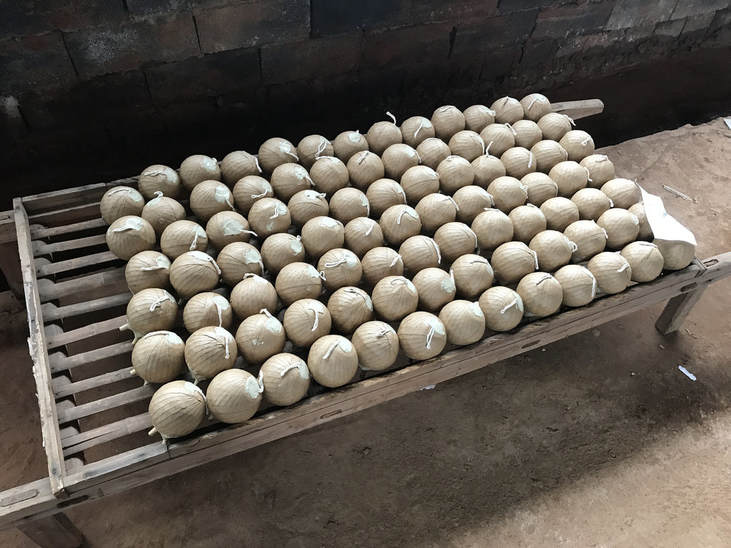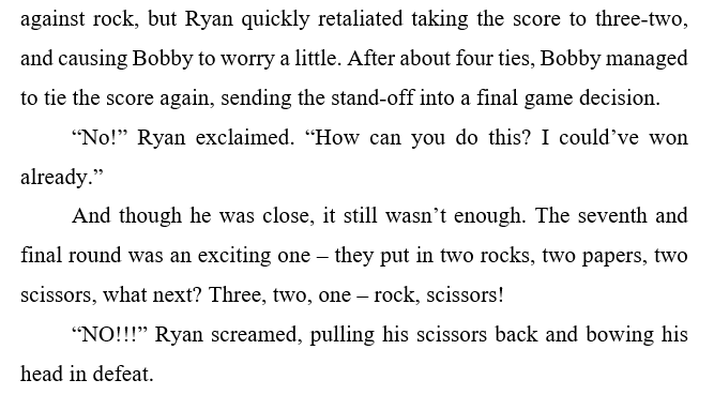Silver Wordsmith: An author's journey |
 The pasted-paper casing of fireworks seemed like a public menace to a six year-old. Photo credit: EpicFireworks on Visualhunt.com / CC BY The pasted-paper casing of fireworks seemed like a public menace to a six year-old. Photo credit: EpicFireworks on Visualhunt.com / CC BY Inaugural entries seem disingenuous. It feels like saying hello to someone who’s not there. But at the same time I think they’re necessary, otherwise I’m blasting away without as much as an introduction and that’s just rude. I grew up in Moscow, my first years spent in the dying light of the Soviet Union, so naturally Russian was my native tongue. But my flirtation with the English language began before I started school, mostly learning the name of colours and vehicles from a Richard Scarry book. One of the earliest home videos of me is sitting at the dinner table at my grandparents’ Budapest apartment repeating “I want an ice cream” ad nauseam, which tested even my grandfather’s grandparental patience. My parents provided me with my first big break in life by putting me into a private English Immersion elementary school which at first operated out of a couple of rooms in Bauman Moscow State Technical University. On my first day of school, the most English I could scrape together was “Can I go to the toilet?” When I was repeatedly asked “Do you speak English?” and couldn’t respond (though in hindsight, you’d think my initial silence would be answer enough), I asked to call my parents, who, gently but firmly, told me to suck it up. By Grade 2, I was the main distraction in the classroom because I refused to shut up. There are plenty of things about me as a kid and teenager that I’m not proud of, and I’m sure I’ll get to more of that later. My inclination towards fiction started early. In second grade we had a workbook where every week we had to write a tiny short story on a topic of our choosing. One week, we were asked to write about an event that actually happened to us, which I found boring and so I wrote this totally true account of a man getting hit on the head by a falling firework casing and our whole family visiting this complete stranger in the hospital for some reason. Thank you Mrs. Searle for never calling me out on it. Fast forward a couple of year and our Grade 4 class gets an assignment to write a short story that we get to read in front of the whole class. Suddenly this was my time to shine. While others put together two pages about a lost birthday cake, I burned through two notebooks chronicling the ice hockey career of a child of an alien who crash-landed in Siberia while hitching a ride on the Tunguska meteorite. Seconds after he won the Stanley Cup he was beamed up to come home to his mother’s native planet of Pluto. Unfortunately for my class, they never go to hear the epic ending to a story that took great liberties with the rules of hockey and the universe, because my tale was taking up too much class time. Whatever, I knew I had found a sort of addiction.  This is where all the early magic happened - our apartment building at No. 3 Yegerskaya Street in Moscow. The entrance to the scientist's secret lab was a manhole cover located at approximately the same spot this picture was taken from. Courtesy of Google Streetview This is where all the early magic happened - our apartment building at No. 3 Yegerskaya Street in Moscow. The entrance to the scientist's secret lab was a manhole cover located at approximately the same spot this picture was taken from. Courtesy of Google Streetview The following year, inspired by a dream that made no sense, I started work on a new project that also made no sense. In this tale, which I called “Black Ants”, all the characters were my classmates, and I was friends with a kooky inventor scientist, which Back to the Future led me to believe was an ordinary occurrence for your typical teenager. The plot of the story was pretty standard fare. I mean, what ten year-old doesn’t fantasize about him and his friends being the only ones capable of saving the world from a secret organization that possessed the formula to invisibility but needed to steal classroom sharpeners in order to maintain their supply of doomsday metal? No, I did not take any drugs as a child.  To my lovely high school friends who edited this crap: I'm so sorry. To my lovely high school friends who edited this crap: I'm so sorry. By Grade 6, Black Ants had gone to the purgatory of unfinished novels, so I will never know how we managed to stop the villains from raining radioactive metal rods on the unsuspecting populace. At this point, I wanted to write about our encounter with “Insectoids”. I mean, what grade school kid doesn’t fantasize about him and his friends being the only ones capable of saving the world from an invasion of parallel dimension-dwelling but also alien insect creatures which suspiciously resembled the Shadows from Babylon 5? I will continue to insist that this was homage, not plagiarism. In 1999, when I had only recently turned thirteen, our family moved to Canada, and my life changed in more ways than I could understand. As a commercial lingua franca, English had not exactly been exotic at that point, but it was combined to its spheres: music, satellite TV, school, and the background noise to the terrible Russian dubs of Hollywood movies. Now I had become steeped in English. It surrounded me. It swallowed me whole. For so long it had only been a visitor in my head, summoned only when I needed it. Suddenly there was no getting away from it. The Russian inside my head struggled for survival as English replaced vocabulary and grammatical structures, thoughts, ideas. The Russian survived in the end, though a little worse for wear. Conversations plod along with great effort, my brain desperately searching for vocab words that are just below the surface of memory, like ice fishing without a hole. English was my native tongue now, and Russian had its spheres: my parents’ home, books, the New Year’s specials. It was a process that was both terrifying and exhilarating. I felt comfortable with English. It fueled the creativity that lay dormant for more than a year as I was pulled out of school in an anticipation of our move to Canada. The first victim of this outburst of creative energy was my first friend in Canada, Bajer, whom I somehow conned into taking turns writing a sci-fi epic with me. I mean, what teenager doesn’t fantasize about him and his friends being the only ones capable of defending from monsters their spaceship city which had been pulled into an unexplored corner of the galaxy by a mysterious alien. Fans of Star Trek: Voyager and especially Power Rangers: Lost Galaxy would rightfully point out that I was still iffy on that whole homage/plagiarism dichotomy. Bajer put up with my micromanaging like a champ, although when I decided to loudly talk to him within earshot of the entire class about why this will make us famous, he politely asked me never to speak of it in public again. Given my own rock-bottom popularity in Grade 8, I now understand Bajer completely and don’t blame him for it one bit. For the next couple of years I jumped through new schools, which turned out pretty great for me since this is how I met the girl who would eventually become my wife, and also met a few friends to torture with my new writing project. I mean, what high schooler doesn’t fantasize about him and his friends winning an all-expensive paid trip to Turkey? Okay, granted it’s not exactly the vacation destination every teenager lusts over, but hey, the trip was free, so what are their hypothetical selves complaining about? By the time this bloated disaster had died on the drawing board after almost reaching 50,000 words, I had covered only the first three days of what was supposed to be a three-week trip. Just to illustrate how this could have possible happened – three quarters of a page were dedicated to a detailed play-by-play of a rock, paper, scissors match. Despite digging desperately through the bottom of the teenager writing barrel, around this time is when some of my more serious writing started to crop up. Novels still appeared and then died ten pages later, but I started seeing more and more short stories to completion. Some of these were terrible, some decent for my age. I tried to get some published, but naturally it was to no avail – I was nowhere near ready. But childhood fantasies gave way to attempts to explore more complex topics like genetic engineering and grief-driven revenge. These short stories, and my friends’ interest in reading them as a favour to me, sustained this continued effort to improve my craft. It was sometime in high school when the idea that would eventually shape my first novel first came into existence. It churned and was refined in my head for years until it was finally put to paper, and it’s made several long trips to the realm of unfinished works since then. But in the end it persevered, and two years ago made it to the first full draft. I’m currently working on the third draft, still far from the finish line but I now have a clear idea of where it’s going to end up. It’s been over a decade since I lived vicariously through my writing, and yet I don’t feel that writing has become any less fun. Sure, editing is a pain sometimes and writers block will occasionally find me and either prevent me from finding that perfect word or will derail a search for plot altogether. These are the challenges that define the art, and the art itself is what gives me joy. The ability to create worlds, characters and stories is what fuels my passion. Storytelling is one of the most ancient of humanity’s pastimes, and I want to make my modest contribution to this proud tradition. I hope you can join me for the journey.
0 Comments
|
Michael SerebriakovMichael is a husband, father of three, lawyer, writer, and looking for that first big leap into publishing. All opinions are author's own. StoriesUrsa Major Categories
All
Archives
January 2024
|
Proudly powered by Weebly
 RSS Feed
RSS Feed